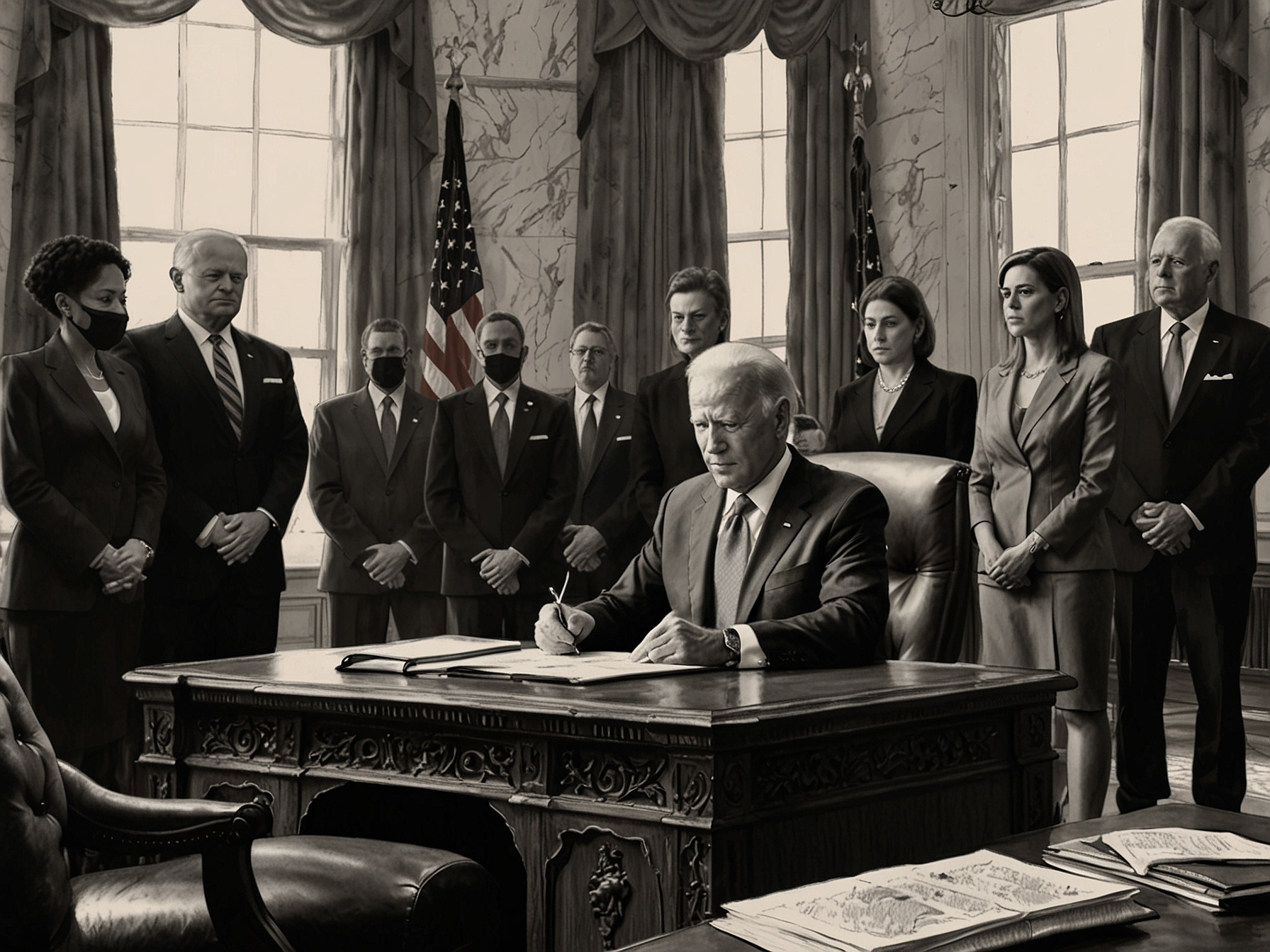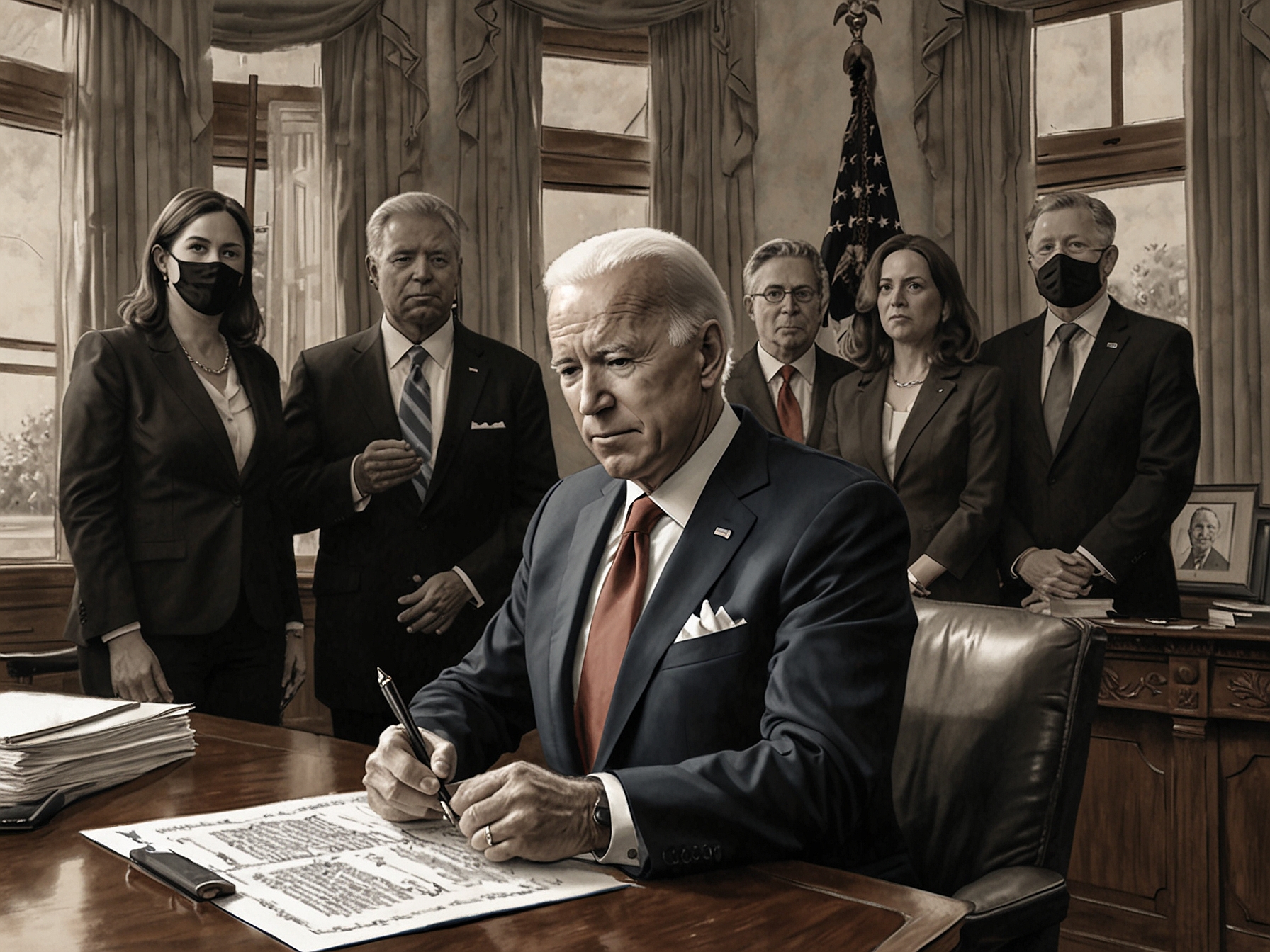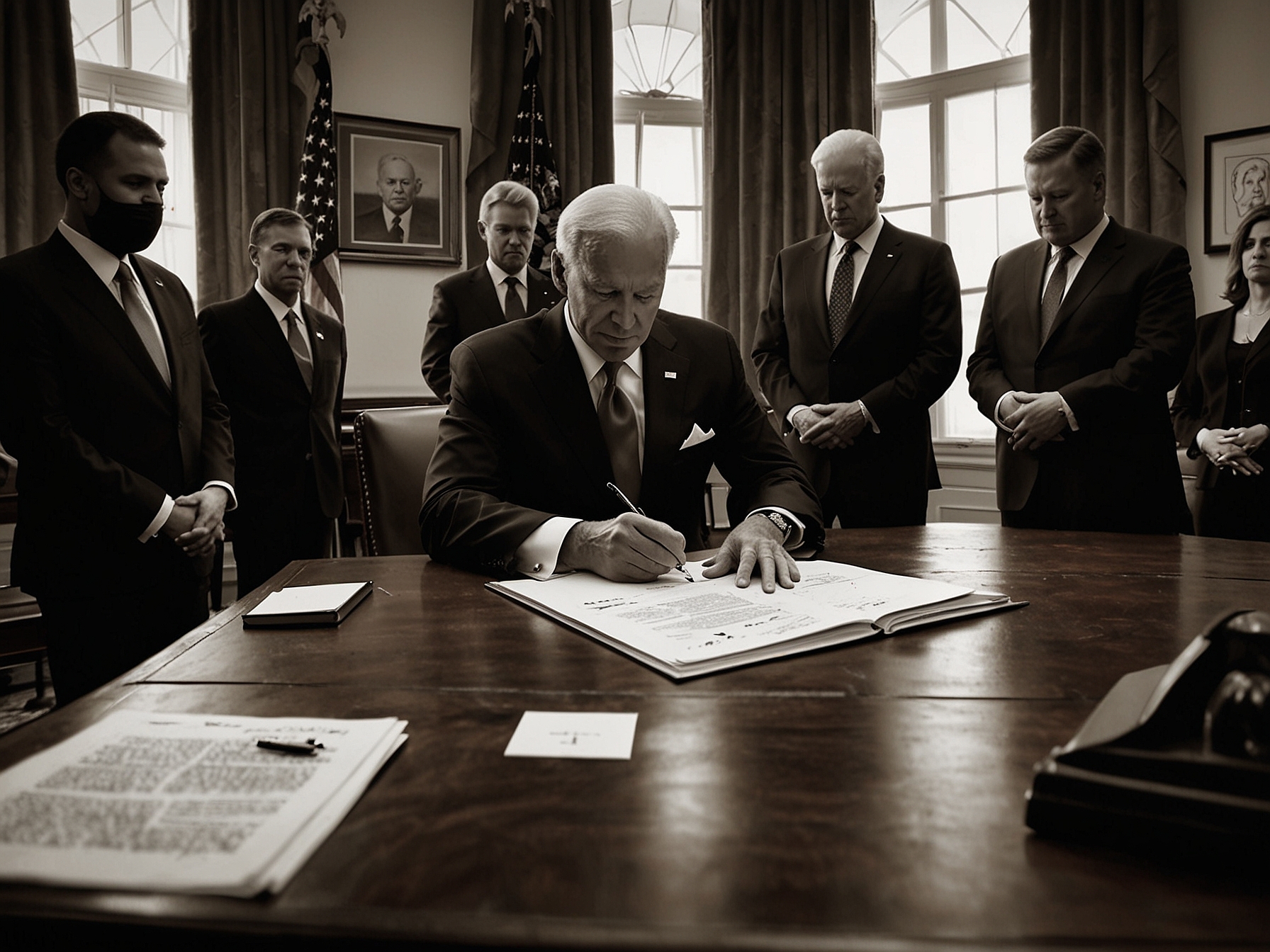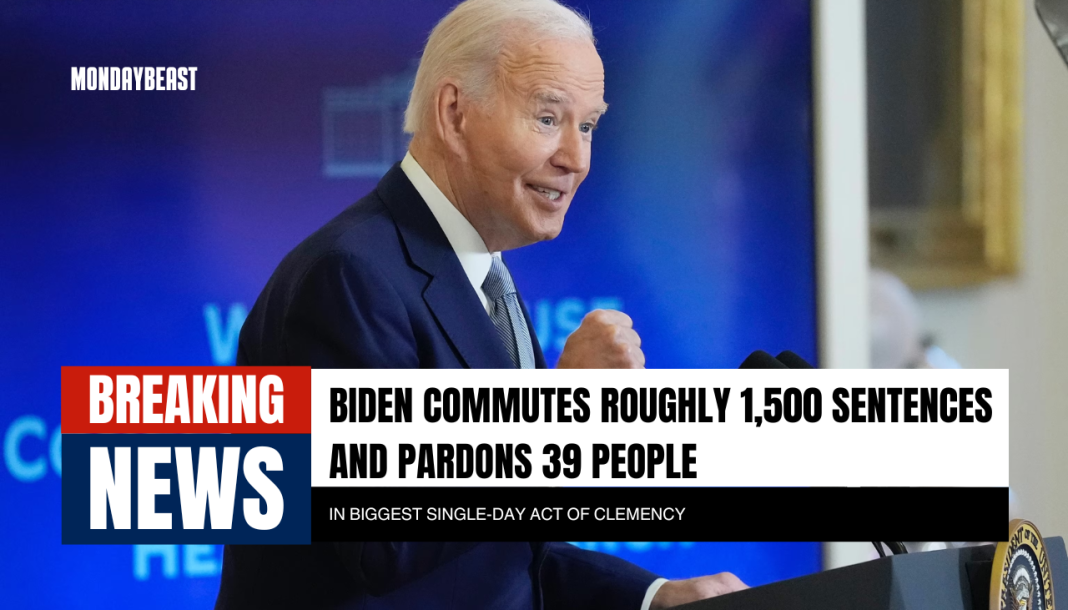Biden Commutes Sentences
President Joe Biden made history on Thursday. He commuted nearly 1,500 sentences. This sweeping act of clemency stands as the largest single-day decision of its kind in modern U.S. history. The commutations concern those who served time under home confinement during the pandemic. They highlight a government shift in how criminal justice is viewed in America.
In the throes of the COVID-19 pandemic, prisons became hotspots. At one point, an alarming 1 in 5 inmates had the virus. Many were released to limit this spread, raising the question: were they ever truly given a fair chance? It is a complicated issue of justice, redemption, and public health, packaged into a single, historic day of decisions.

This act does not just signal a change in Biden’s administration. It reflects broader societal views on rehabilitation. How can we, as a society, move beyond stigma? These actions aim to restore dignity and hope for many, especially those who committed nonviolent offenses.
Understanding Clemency
Biden’s decisions also shine a light on clemency itself. It’s a presidential power that allows for forgiveness or reduced sentences. What does this mean for people like Trynitha Fulton, a New Orleans resident and a pardoned individual? She describes it as a newfound freedom, as her past conviction felt like a mental cage.
Clemency, though often misunderstood, serves a vital role. It’s about recognizing the possibility of rehabilitation. In discussing clemency, we challenge our own beliefs about justice. Shouldn’t everyone deserve a chance to rebuild their lives? Biden’s declaration acknowledges this and emphasizes mercy as a principle we should embrace.
Pardons for Nonviolent Offenders

In addition to commuting sentences, Biden pardoned 39 individuals. These pardons focused on those with nonviolent crimes. These decisions can be deeply emotional. They represent societal hope for rehabilitation, suggesting that an offense is not the whole person.
Among those pardoned were inspiring figures, like a decorated military veteran. Imagine the depths of a life constrained by a past crime. This is where personal stories intersect with policy. The heart of Biden’s initiative is about giving people new opportunities. People deserve a second chance, especially if they have changed their lives.
Fulton, who participated in a payroll fraud scheme, knows that transformation is possible. She has turned her life around, now supporting youth in her community. It’s poignant to consider: how many people like Fulton are waiting for their chance?
Implications of the Decisions

While these decisions spark hope, they also invite scrutiny. Biden faces pressure from various advocacy groups who want him to extend clemency even further. Should execution sentences be reconsidered in light of these changes? Many have voiced the need for justice reform beyond these pardons.
A newly proposed pardon for attorney Steven Donziger shows the complexity of these issues. Representing Indigenous farmers in a notable lawsuit, his case raises questions of environmental justice and corporate accountability. There is a rich tapestry of stories tied into clemency decisions. While Biden’s actions are commendable, they also raise questions about fairness and equity.
The Road Ahead
Looking forward, more clemency can be expected from Biden. Campaign promises about criminal justice hang in the air as he approaches the end of his term. But the potential for more pardons brings significant questions. How will these actions shape America’s relationship with criminals? How will Congress respond?
There is uncertainty regarding possible pardons for those who investigated Trump’s actions. Should it extend to preemptive measures for those at risk? This string of decisions is not merely about past mistakes but sets a future tone for justice.
In closing, Biden’s clemency decisions could be a turning point. They bring a relevant dialogue on what mercy looks like in America today. It’s about transformation, hope, and the need for society to rethink the roles we place upon people who have stumbled. Are we ready to respond not with judgment but with understanding? This is the question we must all consider.




